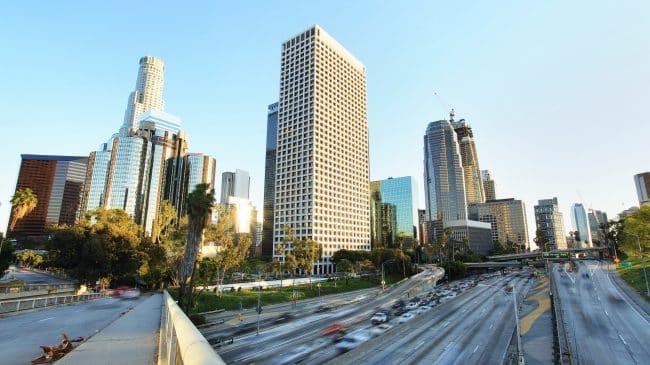The Los Angeles County Metropolitan Transportation Authority (Metro) is the surface transportation planning and funding agency for the largest county (by population) in the United States, and is the operator of the nation’s third-largest public transit system.
Metro is considering the adoption of 28 by 2028 — a plan to complete 28 major transportation construction projects prior to the beginning of the 2028 Los Angeles Summer Olympics. This proposal would accelerate eight projects for completion by 2028 in addition to the 20 specified in Measure M, the 2016 County transportation half-cent sales tax ballot measure.
Metro has a history of over-promising and then failing to deliver on such projects, ultimately making conditions worse for Los Angeles transit users. The 28 by 2028 proposal appears to repeat the pattern.
This is the first brief in a series of summaries that examines Metro’s record, and those of its predecessor organizations, over the past several decades.
This history, additional facts, and economic logic show that 28 by 2028 is unlikely to succeed. Metro’s attempt to accomplish too much too fast has a high likelihood of making transit in Los Angeles County worse for transit riders and other users of the local surface transportation system. The implications are worst for the most vulnerable group: the very large number of low-income and otherwise disadvantaged residents who are strongly dependent on public transit in their daily lives.
Subjects This Series Will Cover
Each of the summaries in this series presents information about one or more of the following:
-
- Introduction, Overview, and the Birth of Transit in Los Angeles
- The Rise of the Los Angeles County Metropolitan Transportation Authority (Metro)
- Metro’s Transit Ridership Is Declining—MTA Ridership is down 21 percent from its 1985 peak and has been declining significantly in recent years.
- Metro’s Long Range Plans Overpromise and Underdeliver—Each of Metro’s four half-cent sales taxes approved by the voters has been accompanied by a long-range plan showing the construction of large numbers of new passenger rail lines—most of which get delayed or are never built.
- Part A: Improving Bus Service and Reducing Fares Have Greatly Increased Transit Use in Los Angeles Three Times
Part B: Why Has Metro Been Losing Ridership Since 2007? And What Can It Do to Reverse This Trend? - Labor/Community Strategy Center v. Los Angeles County Metropolitan Transportation Authority—In the only court decision of its kind, the Special Master ruled that expanding bus service is more effective than expanding rail.
- Metro Consistently Significantly Overstates Sales Tax Revenues—Even after optimistic projections of future sales tax revenues have failed to develop, Metro continues to overstate expected revenues. Metro’s most recent projections, for Measure M, are among the most optimistic it has ever produced, and are not credible. This brief has been updated.
- Metro Has Frequently Understated Transportation Project Costs—Metro has underestimated the costs of major construction projects and then used accounting and budgeting gimmicks to conceal these overruns.
- Metro’s Congestion Pricing Revenue Pricing Estimates Are Not Credible—The agency is advancing congestion pricing as an important potential funding source, which it is, but Metro is projecting huge revenues that are too large to be credible. Implementing congestion pricing will require more time than Metro is projecting, requiring new legislation, and a focused campaign to promote public acceptance.
- Metro’s Public-Private Partnership Revenue Estimates Are Not Credible—It is also advancing Public-Private Partnerships (P3) as a tool to reduce costs. P3s improve the quality and reduce the cost of large projects. But Metro is projecting much larger cost savings than possible, and for the projects to be delivered in a shorter time period than is feasible.
- Metro Will Not Have the Revenue or the Debt Capacity to Undertake Many of the Proposed 28 Projects—Metro has overstated future sales tax revenues, understated the costs of major transportation capital projects, and relied on long-range plans that would fail to produce the set of major rail transit construction projects they promise.
- Metro’s 28 by 2028 Plans and Proposals Are Built on Many Questionable Assumptions and Errors
- Metro Has a History of Evading Legal Requirements, Potentially Ignoring the Law
- Metro’s Congestion Eradication and Fare-less Transit Proposals Are Unrealistic—The most audacious promises on which Metro bases 28 by 2028—including “eradication of congestion” and fare-less transit—are infeasible and operationally impossible.
- Bus Is Very Productive And Cost Effective, Rail Is Not, But Metro Favors Rail Over Bus—Metro has a very highly utilized and well-performing bus system, while its light and heavy rail systems are far less cost-effective.
The first piece of this series was posted on March 1, 2019. The final brief, number 15, was posted on May 28, 2019.

